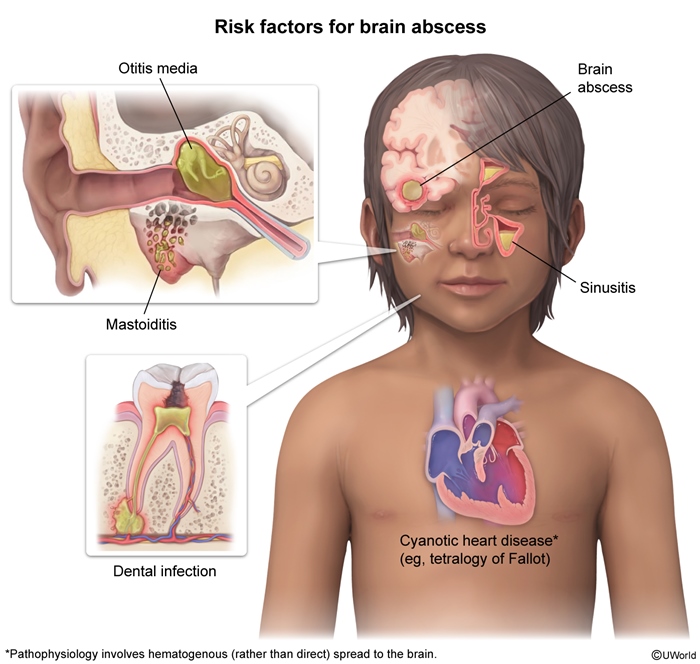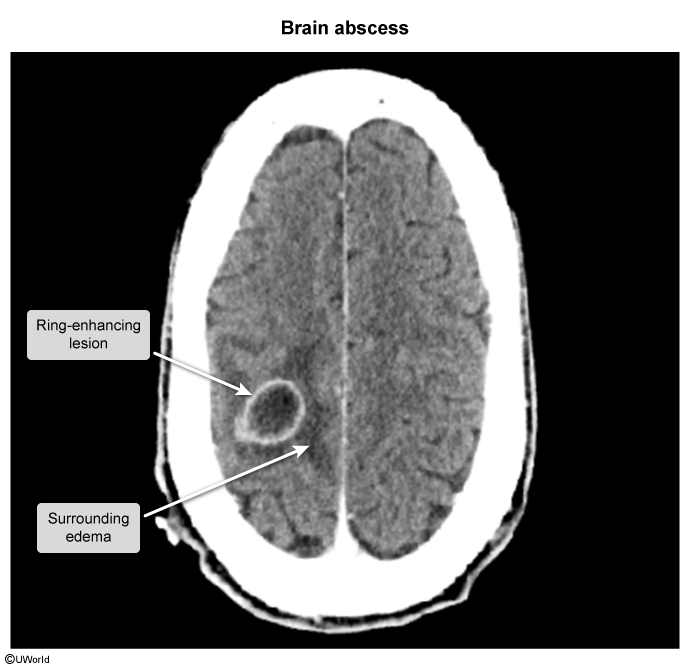Brain Abscess
Article Sections
Introduction
A brain abscess is a localized infection within the brain parenchyma, characterized by a collection of pus surrounded by a capsule. Brain abscesses are typically caused by bacterial infections, although fungal and parasitic infections are also possible. Despite advancements in diagnostic imaging and treatment, they remain associated with significant morbidity and mortality, necessitating prompt diagnosis and intervention.
Pathophysiology
A brain abscess can be due to:
- Hematogenous spread of bacteria from a distant location, most commonly the heart (eg, endocarditis) or lungs (eg, abscess, empyema). This often leads to multiple abscesses, often in the territory of the middle cerebral artery near the gray-white matter junction; this likely occurs because vessels become more narrow at the junction, leading to a place for infectious emboli to get stuck.
Continue Learning with UWorld
Get the full Brain Abscess article plus rich visuals, real-world cases, and in-depth insights from medical experts, all available through the UWorld Medical Library.
Unlock Full AccessFigures

Figure 1
Images

Image 1
Tables
Table 1